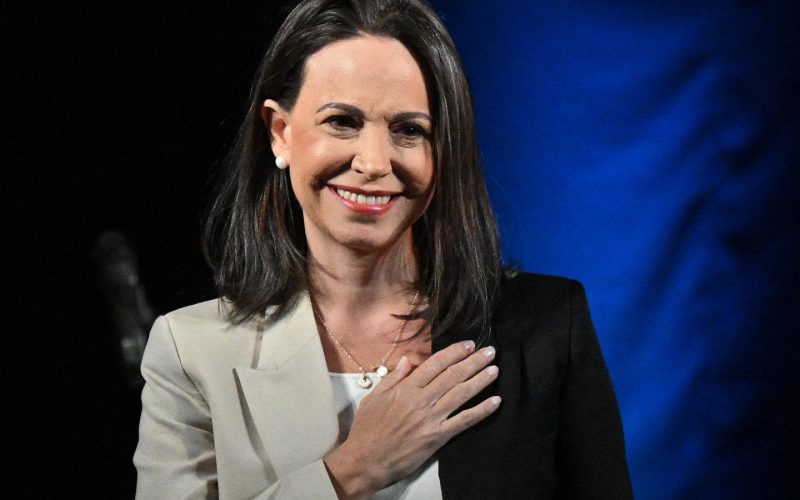The awarding of the 2025 Nobel Peace Prize to Venezuelan opposition leader María Corina Machado has had a direct effect on the Honduran political scene, consolidating her status as a democratic icon and causing tensions within the ruling LIBRE party.
Evolution of María Corina Machado’s influence
Prior to this international recognition, Machado had a limited presence in Honduran political discourse. She was mainly cited in debates on the situation in Venezuela and criticism of Chavismo, without having a tangible effect on the local political agenda. Sectors close to LIBRE associated her leadership with international interventionism, while the opposition mentioned her as an example of resistance to authoritarian regimes, without this having a significant impact on citizen activism.
The Nobel award altered this situation. Machado served as an emblem of democratic advocacy, acknowledged by civic groups, campaigners, and political factions within Honduras. Her command evolved into a clear benchmark in advancing political entitlements and safeguarding democratic structures, reinforcing the anti-Chavismo viewpoint across the nation.
Impact on the governing LIBRE party
International recognition created a sharp contrast with the internal situation of LIBRE. Rixi Moncada’s candidacy faces a drop in the polls and tensions due to corruption cases and internal conflicts. Political analysts indicate that Machado’s visibility highlights the institutional challenges of the ruling party, increasing pressure on its leadership structure.
The Court of Ethics for LIBRE is experiencing challenges in preserving its internal unity, at the same time that the activation of factions associated with Mel Zelaya escalates societal friction. Claims of political aggression and concerns regarding electoral fairness have grown, foreshadowing an intricate situation leading up to the general elections on November 30.
Implications for Honduran politics and society
The acknowledgment of María Corina Machado extends across boundaries, invigorating democratic movements in Honduras. Her presence serves to underscore opposition against policies deemed authoritarian and to solidify a political discourse centered on institutional integrity, civic involvement, and safeguarding basic human rights.
At the same time, the impact of the Nobel Prize highlights the challenges faced by the ruling party in maintaining legitimacy and internal cohesion. Political polarization is intensifying, and the interaction between international actors and local dynamics is becoming increasingly relevant to the country’s political and social agenda. Public attention is focused both on the international profile of opposition leaders and on the ability of the government and LIBRE to maintain governance and ensure transparent electoral processes.




